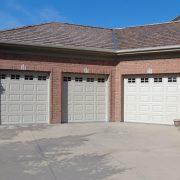Reasons that foundations crack
There are several reasons for foundations to crack and when they do, it is best to repair them as quickly as possible. Although there are several commercially available concrete crack repair agents, it might be best sometimes to call in a crack repair specialist who can evaluate whether the crack may need more than just a repairing agent. It is best to be as safe as possible when it comes to your foundation.
1. Excessive water in the concrete.
Sometimes, concrete used in residential work can have too much water added to it when it is being mixed as this makes it easier to install. However, this will also make the concrete less strong and less durable and cracks will form more easily in the concrete. Make sure that your contractor is reputable and is using the right amount of water in the concrete.
2. Concrete that has dried too fast.
The chance of cracking is very high in concrete that has dried very rapidly. The concrete slab needs to have been cured properly and should take the required amount of time to set. This process, when concrete goes from liquid to solid is handled with the proper amount of water in it. Make sure your contractor is experienced and knows how to cure concrete in the right way.
3. Concrete used is not of appropriate strength.
Concrete is available commercially in a variety of strengths and each job requires a different kind of concrete. Knowing which concrete is most appropriate for job is very important and you should always talk to the ready mix supplier to make sure that you have chosen the right kind.
4. Control joints not used properly.
Control joints cause the concrete to crack at the places you want it to. Without enough of them, the concrete will start cracking in places that it should not and this can lead to a lot of problems. Make sure you or your contractor know how to use these properly.
5. Concrete was poured on frozen ground.
Concrete should never be poured on frozen ground. Not only will the cold mean that the concrete will not be cured properly, but the moisture will also wreak havoc on the concrete. There are things like curing blankets available that help pour concrete in cold weather and these should always be used.
Pouring concrete is a task best left to the experienced as there are many ways to lessen the strength of the pour and this will cause problems sooner or later.






